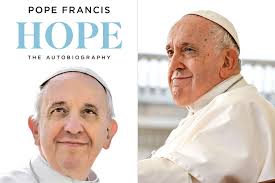It’s not every day that a dystopian sci-fi novel written over a century ago finds itself in the good graces of not one, but three popes.
Yet that’s exactly what’s happened with Lord of the World, a 1907 novel by Robert Hugh Benson.
While it may not be a household name today, this haunting story about a godless future has been repeatedly highlighted by Popes Benedict XVI, Francis, and Leo XIV.
So what is it about this old book that still resonates in the highest halls of the Catholic Church?
A Society Without God — And Its Collapse
Lord of the World paints a bleak, apocalyptic picture of a world that has completely abandoned faith.
Benson’s narrative critiques Western society for surrendering itself to the extremes of capitalism and socialism, describing a future dominated by secularism, materialism, and oppressive state control.
At the heart of the story lies a chilling idea: when God is erased from the center of human life, society doesn’t just lose religion — it loses its soul.
From Anglican Roots to Catholic Vision
The novel’s author, Robert Hugh Benson, was no stranger to spiritual struggle.
He started out as an Anglican cleric before converting to Catholicism and becoming a priest in 1904.
Just a few years later, he penned Lord of the World, which many see as his way of grappling with the spiritual direction of modern society.
Through this book, Benson offers a stark warning about the dangers of a future run entirely by human ambition, unchecked technology, and political power.
The Antichrist in a Suit and Tie
One of the most gripping elements of Benson’s novel is its portrayal of the Antichrist — not as a monster, but as a charismatic, well-spoken leader.
This character champions what seem like progressive ideals, but they gradually unravel into something deeply destructive.
It’s a subtle, chilling reflection of how evil can wear the mask of progress.
Why Pope Benedict XVI Found It Thought-Provoking
Back in 1992, then-Cardinal Joseph Ratzinger (who would become Pope Benedict XVI) spoke about Lord of the World during a lecture at the Catholic University of Milan.
He called the novel “something that gives much food for thought,” particularly for anyone concerned about where modernity might be headed.
For Benedict, the novel offered not just a story, but a serious meditation on the spiritual dangers of modern secularism.
Pope Francis Called It Prophetic
Pope Francis has been especially vocal about his appreciation for the book.
During a trip to Budapest in 2023, he spoke to cultural leaders about Lord of the World and praised its “prophetic” vision.
He was struck by how, despite being written more than 100 years ago, it still eerily captures many of today’s global anxieties.
Francis reflected on how the book warns against a world where technology dominates everything, where progress becomes an excuse to erase individuality, culture, and religion.
In his words, the story exposes how beneath the surface of mechanical complexity, there can lurk “subtle insidiousness.”
Why the Message Still Matters Today
The reason this book keeps coming up among popes may be simple: its themes still ring true.
In a time when society is grappling with questions around identity, religion, and progress, Lord of the World offers a sobering reminder of what can happen when we lose sight of spiritual foundations.
Whether you’re religious or not, it’s a compelling read that challenges the idea that more technology or stronger governments alone can solve our deepest problems.

